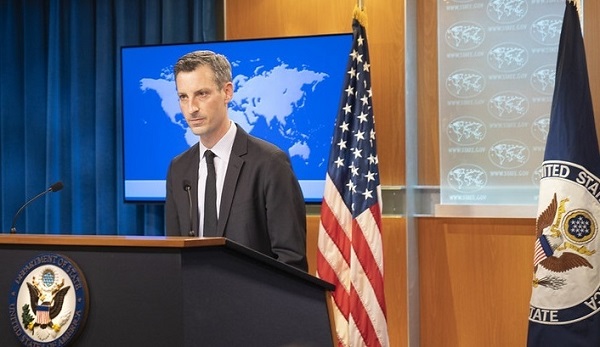New York, (Asian independent) US State Department spokesperson Ned Price has characterised Russia selling the S-400 Triumf missile defence system to India as a “destabilising role”.
Asked at his briefing on Thursday how the missile purchase was going to affect Washington’s relations with India given the tensions between the US and Russia over Ukraine, Price said: “I think it shines a spotlight on the destabilising role that Russia is playing not only in the region, but potentially beyond as well.
“In many ways this (India buying S-400) doesn’t change the concerns that we have with the S-400 system.”
“Whether it is India, whether it is any other country, we continue to urge all countries to avoid major new transactions for Russian weapon systems.”
Price did not however, expand on how the S-400 sale was “destabilising”.
But India purchasing the cheaper S-400 system and Navy frigates and signing an agreement last month with Russian weapons company Kalashnikov to manufacture its AK-203 rifles in India have put a wrinkle in New Delhi-Washington relations raising national security issues for the US in their drive to achieve equipment interoperability as they forge closer military ties.
Price also said that the US has not decided whether to impose sanctions on India under the Countering America’s Adversaries Through Sanctions Act (CAATSA) which requires sanctions against countries buying Russian defence equipment.
“When it comes to CAATSA sanctions, you’ve heard me say before we haven’t made a determination with regard to this transaction, but it’s something we continue to discuss with the government of India, given the risk of sanctions for this particular transaction,” he said.
India’s purchase of the S-400 system poses a quandary for the US because of the growing ties with New Delhi as a counterpoise to China in Asia and elsewhere.
James O’Brien, the nominee for Coordinator for Sanctions Policy, had said earlier this month that in considering sanctions on India, “there are important geostrategic considerations, particularly with the relationship to China” and “so, I think, we have to look at what the balance is”.
Republican Senator Todd Young, who had asked O’Brien about CAATSA sanctions at his confirmation hearings, put the dilemma succinctly: “India is vital ally in our competition against China, and that’s why I believe we should resist taking any actions that might drive them away from us and the Quad. I’m therefore strongly supportive of waiving CAATSA sanctions against India, given our shared foreign policy interests.”
The Quad is the group of India, the US, Australia and Japan that is drawing closer together in the Indo-Pacific region that is witnessing increasingly aggressive actions by China.
As tensions mount between Russia and the US along with its allies, Washington has reached out to India to discuss the situation in Ukraine.
Deputy Secretary of State Wendy Sherman spoke with Foreign Secretary Harsh Shringla last week and they discussed “Russia’s concerning military build-up on Ukraine’s borders”, Price had said in a readout after the call.
He added that they “agreed to remain closely coordinated on shared goals and priorities”.








